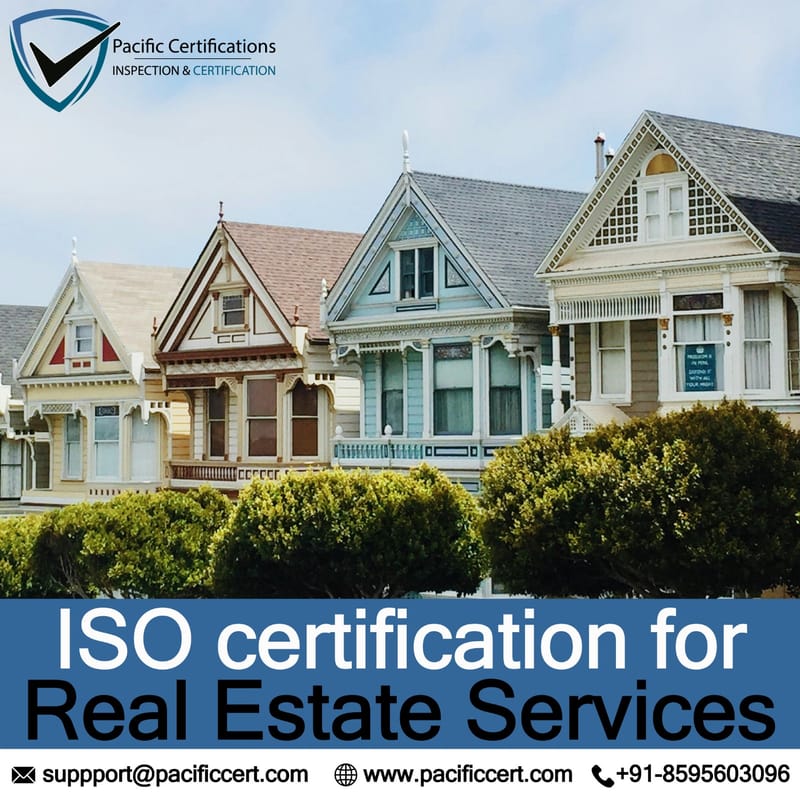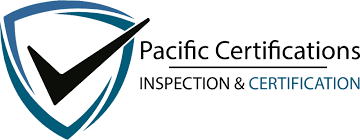ISO Certifications for Real Estate Industry, Requirements and Benefits

Introduction
The real estate industry operates in dynamic and complex environments. Developers, property managers, real estate agencies, and construction firms must balance quality delivery with regulatory compliance, environmental sustainability, and stakeholder satisfaction across diverse market segments. Businesses face significant operational challenges that impact their success. Maintenance delays lead to tenant dissatisfaction and property deterioration. Companies must navigate regulatory compliance with building codes and zoning regulations to avoid fines and legal liabilities. Deferred maintenance causes property values to decline over time. Financial mismanagement often results in budget overruns that squeeze profit margins. Quality control remains critical across both development and operational phases to maintain standards.
Market dynamics are intensifying in 2026 as global real estate shows renewed optimism. Economic growth is driving activity across sectors. However, elevated interest rates continue squeezing development viability for many projects. Demographic shifts and AI integration are reshaping sector fundamentals in ways that demand new operational approaches.
ISO certifications provide real estate businesses with systematic frameworks to address these challenges. These standards help standardize operations, ensure construction safety, and optimize asset management. They also demonstrate professional capability to investors, lenders, and clients who increasingly scrutinize operational excellence. Corporate clients and institutional investors now require documented quality management systems as prerequisite qualifications. Regulatory pressures and ESG expectations demand verifiable controls that protect stakeholder interests.
In real estate, credibility is built on trust, and trust is maintained through systems that ensure quality, transparency, and compliance
Quick Summary
ISO certifications provide real estate businesses with internationally recognized frameworks to manage quality through ISO 9001, environmental responsibility through ISO 14001, workplace safety through ISO 45001, information security through ISO 27001, asset management through ISO 55001, and facility management through ISO 41001. These standards address the real estate industry's critical requirements for quality assurance, safety compliance, sustainability performance, and operational efficiency while supporting competitive positioning in markets demanding professional management.
For guidance on ISO certification audits for your real estate business, contact [email protected].
Applicable ISO Standards for Real Estate Services
Below are the applicable ISO standards for real estate industry:
ISO 9001: Quality Management Systems (QMS)
ISO 9001 enables real estate businesses to establish documented procedures controlling project development, sales processes, leasing operations, facility management, and after-sales service ensuring consistent quality that meets customer requirements and regulatory standards. Implementation addresses common quality failures including project delays, construction defects, poor tenant communication, maintenance delays, and inconsistent service delivery that damage reputation and profitability.
ISO 14001:2015 - Environmental Management Systems
Environmental management enables real estate businesses to implement sustainable practices including eco-friendly construction methods, energy-efficient building systems, waste management during development, water conservation initiatives, and green building certifications increasingly demanded by environmentally conscious buyers, tenants, and investors. This standard helps organizations create environmental policies focusing on sustainability, track environmental impact, achieve LEED certification, and demonstrate ESG leadership influencing property values and market positioning
ISO 45001:2018 - Occupational Health and Safety Management Systems
Construction and real estate operations involve significant safety risks including falls from heights, struck-by incidents, electrocution hazards, caught-in/between accidents, and exposure to hazardous materials, with construction having one of the highest workplace accident rates. This standard establishes frameworks for systematic hazard identification, comprehensive risk assessments considering site-specific conditions, control measure implementation including engineering and administrative controls, and continual safety improvement achieving 30% reductions in workplace incidents within first year of implementation.
ISO 41001:2018 – Facility Management System
For property management and maintenance firms, ISO 41001 enhances operational efficiency and service quality in managing buildings and infrastructure. It ensures optimal use of resources, lifecycle management of assets, and improved coordination between clients, occupants, and service providers for effective facility performance.
ISO 50001:2018 – Energy Management System
Asset management addresses the real estate industry's need to optimize property portfolio performance across entire lifecycle from acquisition through disposal, managing costs, controlling risks, and maximizing value realization. This standard provides frameworks for strategic asset planning, lifecycle cost analysis, preventive maintenance prioritization, performance monitoring, and informed decision-making balancing cost, risk, opportunity, and business objectives improving organizational sustainability.
ISO 27001:2022 - Information Security Management Systems
Information security addresses the real estate industry's handling of sensitive data including client information, tenant records, building access systems, smart building technology, financial records, and property transaction data requiring protection against cyber threats, data breaches, and unauthorized access. This standard establishes comprehensive frameworks for data protection, secure building management systems, and GDPR compliance essential for insurance risk management and stakeholder trust.
ISO 22301:2019 – Business Continuity Management System
Real estate developers and property managers face operational disruptions such as natural disasters or market crises. ISO 22301 ensures preparedness and recovery by implementing continuity plans, risk assessments, and response frameworks—safeguarding ongoing operations, tenant services, and investor confidence during unforeseen events.
Click here to find out more applicable standards to your industry
What are the requirements of ISO Certifications for Real Estate Services?
ISO certifications provide a structured framework for improving quality and other operational aspects. Here's a detailed look at the requirements of obtaining ISO certifications in this sector:
ISO 9001: Quality Management System Requirements
Develop and maintain a Quality Management System (QMS) for real estate processes (e.g., property management, client services, sales).
Set measurable quality objectives for areas like customer satisfaction and project timelines.
Implement standardized procedures for property development, documentation, and client engagement.
Conduct regular internal audits and reviews to ensure the QMS’s effectiveness.
Address nonconformities through corrective actions and continuous improvement strategies.
ISO 14001: Environmental Management System Requirements:
Identify and assess the environmental impacts of real estate projects, such as construction waste, energy consumption, and land use.
Set environmental goals to reduce emissions, improve waste management, or use sustainable building materials.
Implement practices for energy efficiency, waste reduction, and eco-friendly construction.
Monitor environmental performance and adjust strategies to achieve sustainability targets.
Ensure compliance with environmental laws and regulations.
ISO 45001: Occupational Health and Safety Management System Requirements
Establish an Occupational Health and Safety (OHS) management system to protect employees on real estate and construction sites.
Identify workplace hazards related to construction, maintenance, and property management.
Develop and enforce safety protocols and emergency response plans.
Provide safety training and protective equipment for all employees.
Regularly audit and review safety practices to ensure compliance with OHS regulations.
Tip: Start with ISO 9001 for quality assurance across project delivery, then expand to ISO 14001 and ISO 45001 to strengthen environmental and occupational safety management for construction and property operations.
For more information on how we can assist your real estate business with ISO certifications, contact us at [email protected].
What are the benefits of ISO Certifications for Real Estate Industry?
ISO certifications provide real estate businesses with strong operational and commercial advantages, including listed below are the key benefits for ISO standards applicable to developers, property managers, and real estate agencies:
Enhanced credibility and market competitiveness as ISO certification demonstrates commitment to internationally recognized standards for quality, safety, and environmental responsibility differentiating businesses in competitive markets
Improved operational efficiency and cost management through streamlined processes, reduced rework, preventive maintenance preventing costly repairs, and systematic resource utilization
Stronger tenant satisfaction and retention resulting from quality maintenance services, prompt response to requests, transparent communication, and proactive problem-solving building trust
Better safety performance and liability reduction achieving 30% incident rate decreases, ensuring legal compliance, and reducing insurance premiums through systematic risk management
Greater investor and lender confidence as certification demonstrates professional management, risk mitigation, ESG performance, and operational excellence influencing financing terms and valuations
Reduced regulatory risks and compliance costs through documented systems addressing building codes, zoning regulations, safety standards, and environmental requirements preventing fines and legal liabilities
Global real estate markets show renewed optimism with falling interest rates continuing toward neutral levels supporting investment and occupier activity, though rates settling above pre-2020 norms maintain elevated capital costs squeezing development viability. Economic growth projections at moderate but strong levels with core inflation near 3% provide favorable backdrop for real estate performance, while AI integration emerges as transformational driver alongside sustainability imperatives and demographic shifts.
Industry outlook indicates senior housing transitioning from post-pandemic recovery to growth phase leveraging demographic tailwinds with aging baby boomers, professional operational models delivering margin expansion, and average occupancy exceeding 90% by year this year. Primary growth drivers include urbanization concentrating populations in metropolitan centers requiring housing and commercial space, technology integration with smart building systems and AI-driven property management, sustainability consciousness with corporate and individual buyers prioritizing green buildings, regulatory evolution requiring systematic compliance management, and professionalization trends where ISO certification becomes competitive necessity demonstrating operational capability to sophisticated stakeholders.
How Pacific Certifications Can Help?
Pacific Certifications, accredited by ABIS, acts as an independent certification body for real estate businesses by conducting impartial audits against applicable ISO standards. Our role is to objectively assess whether documented management systems and operational processes, development procedures, safety protocols, and environmental controls conform to international ISO requirements, based strictly on verifiable evidence and operational records.
We support real estate businesses through:
Independent certification audits conducted in accordance with ISO/IEC 17021 for quality, environmental, safety, information security, asset management, and facility management systems
Practical assessment of actual real estate operations, construction site safety, property management workflows, and tenant service delivery
Clear audit reporting reflecting conformity status and certification decisions based on documented evidence
Internationally recognized ISO certification upon successful compliance demonstration enhancing credibility with investors, lenders, and clients
Multi-site certifications for developers and property managers maintaining consistent standards across property portfolios
Contact us
If you need support with ISO certification for your real estate business, contact us at [email protected] or +91-8595603096.
Author: Sony

